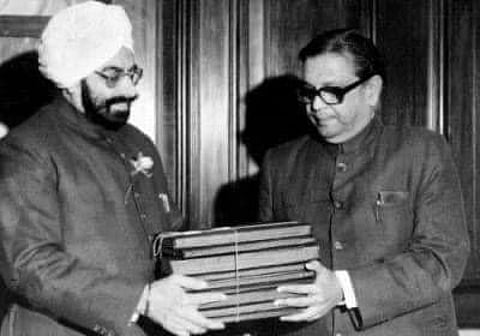
There have been many Commissions appointed by the government since independence. However, there have been only two reports that have made a substantial impact on the politics of the country: the State Reorganisation Commission (SRC) and the Second Backward Classes Commission report, also known as the Mandal Commission Report, which was published in 1980.
The architect of this report, B.P. Mandal, whose full name was Bindeshwari Prasad Mandal, was an Indian politician and social reformer. He is most well-known for his role in the implementation of the Mandal Commission report, which recommended reservations for socially and educationally backward classes in India.
Mandal was born on August 25, 1918, in a village in Bihar, India. He was actively involved in politics and social work throughout his life and was a member of the Indian National Congress, serving in various political capacities.
Mandal served as the Chief Minister of Bihar from 1968 to 1969. During his tenure, he focused on social welfare and development programs to benefit the underprivileged sections of society.
Mandal's resignation as Chief Minister is noteworthy. He resigned from the post in 1969 following the infamous Bihar Movement led by Jayaprakash Narayan, also known as JP, against corruption and misrule. Mandal's resignation was seen as a gesture of support for the movement's demands for systemic change in governance. While Mandal's Chief Ministerial tenure was short-lived, his appointment as the Chief of the Second Backward Class Commission was more consequential.
The commission appointed in 1978 was tasked with identifying the socially and educationally backward classes in India and recommending measures for their advancement. In 1980, the commission submitted its report, which recommended a quota-based reservation system for jobs and educational institutions, providing a certain percentage of seats to the backward classes, which accounted for 52% of the society's population.
The Mandal Commission's recommendations sparked significant debates and controversies across the country, leading to protests and demonstrations both in favour of and against the implementation of reservations.
The precursor to the Bahujan Samaj Party, known as the Dalit Shoshit Samaj Sangharsh Samiti (DS4), founded in 1981, gave the slogan "Mandal Commission lagu karo warna kursi khaali karo" (Implement Mandal Commission or resign). The BSP, formed in 1984, also made the implementation of the report a key demand. Eventually, in 1990, then-Prime Minister V.P. Singh announced the implementation of the Mandal Commission's recommendations, leading to the reservation policy that still exists in India today. This act by the V.P. Singh government met stiff resistance, and large protests broke out all over India, including instances of self-immolation in Delhi.
The Supreme Court’s landmark Indira Sawhney judgment of 1992 upheld the implementation of the Mandal Commission's recommendations while capping caste-based reservations at 50%. The Supreme Court also limited the number of beneficiary castes to only 1800, as opposed to the 3743 castes recommended by the commission. The verdict also introduced the provision of the "creamy layer" and set the family income limit at Rs 1 lakh for availing the benefits. Many analysts consider this judgment a pyrrhic victory.
B.P. Mandal's legacy is closely associated with this commission and the affirmative action it led to. The commission brought a paradigm shift to the political landscape of today's India. According to many political analysts, Indian politics can be divided into post-Mandal and pre-Mandal eras. The Mandal Commission not only brought many underrepresented groups into the mainstream but also gave rise to many politicians from the OBC category. OBCs emerged as a significant political force, and there was a surge in the number of OBC legislators. Parties like the BJP nurtured OBC leaders in their ranks, appointing them as Chief Ministers in various states and eventually leading to a Prime Minister from the OBC community in 2014. Additionally, there are several OBC-led parties that advocate for the rights of backward communities.
Unfortunately, Mandal did not live to see the impact of his work on the politics and society of India, as he passed away on April 13, 1982, years before the report was implemented. Let us remember B.P. Mandal today on his birth anniversary as a significant figure in Indian political and social history, particularly in the context of reservations and social justice.
Also read-
You can also join our WhatsApp group to get premium and selected news of The Mooknayak on WhatsApp. Click here to join the WhatsApp group.